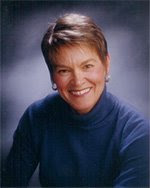Every rule in the book can be broken except one: Be who you are and become all you were meant to be.
-- Sidney Harris
People interested in peak performance know that the first and foremost consideration for clarity is this - are you pursuing your deepest passion? Are you heeding the still small voice that gives you the same clear message year after year about what you are to be doing and yearn to be doing?
All too often, many of us trade our passion for what seems to be the sensible thing to do. "Be sensible." We do what we think we should and lose our aliveness. We worry that what we want is beyond our reach, that we're not smart enough, we don't have the right schooling, that what we want sounds silly and our friends and family will certainly not agree. These false beliefs have seeped into the pores and cells of each and every client I've seen over the last 23 years. And these clients are usually the brightest and best. But the self-doubts, the fears, and the prescriptions of others to keep yourself in your place have taken their toll.
We must know and trust that if our still small voice is urging us to do something, the universe will support us when we take action. Let me repeat that - when you know and trust what your knowing tells you are to be doing with your life, the universe absolutely will support you in this endeavor. Everything lines up, for it is the thing you are here to do. Listen to your inner voice - it rings clear and its telling you the truth!
Jean Houston's study of 55 of the most creative people in the U.S. revealed interesting commonalities. Each was familiar with their interior world and believed its ideas and images could spark their projects - and followed its urgings.
Know you are here for a purpose. It's important. This purpose serves the world and serves you - with passion, joy, enthusiasm, excitement and power. Choose to honor what's in your heart by following its lead. The only other choice is to set limits. Limits create dull, passionless lives. Ask yourself, "What do I love to do? What brings me joy? What do I have fun doing? Joseph Campbell said, "When you follow your bliss, you put yourself on a track that has been there all the time waiting for you." I like that. Read more!
